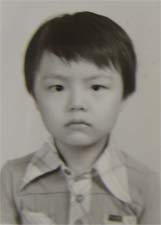There is always criticism that IQ tests may be biased, especially when the same set of questions are used on people from different cultures or of different races.
I'm not particularly interested in seeking evidence produced by any academic research regarding the validity of IQ testing. I still remembered my IQ was 62 according to a test in 1990 and 135 according to another test in 1997. I don't think I could make such progress in seven years' time and thus never believe this issue is worth exploring.
However, if my memory serves me, it seems that there are always 'pick-the-odd-one-out' questions in whatever form of IQ tests. From the following examples, you will understand why these tests are so biased.
Pick the odd one out:
- Asphalt, delight, leave and uncle
- Sun, moon, earth and lemon
- Da Vinci, Einstein, Kennedy and Marco Polo
- Asphalt, because it is the only one that cannot form an idiom with a national adjective. (You can have Turkish delight, French leave and Dutch uncle, but can you have XXX asphalt?)
- Earth, because when you were a wee boy or girl you usually coloured sun, moon and lemon 'yellow' with your crayon. (Earth is usually coloured blue or sometimes green.)
- Einstein, because he is the only one who doesn't have an airport named after him. (Da Vinci serves Rome, JFK serves New York and Marco Polo serves Venice.)
- we've never heard any of these three English idioms?
- we've never done any colouring with crayons in childhood?
- we've never visited Rome, New York or Venice?
 Chinese New Year has just arrived and I'm so glad that I submitted my thesis the day before New Year's Eve. As a matter of the Chinese tradition, all work should be done by the New Year's Eve so that we can have a brand new start.
Chinese New Year has just arrived and I'm so glad that I submitted my thesis the day before New Year's Eve. As a matter of the Chinese tradition, all work should be done by the New Year's Eve so that we can have a brand new start. 

 During my short stay in Taiwan last December, I not only found the historical recording of my childhood singing but also retrieved quite a few passport-sized photos taken at different ages of my life. I have posted the six-year-old Wei in the previous entry and also made it the display picture of my MSN account.
During my short stay in Taiwan last December, I not only found the historical recording of my childhood singing but also retrieved quite a few passport-sized photos taken at different ages of my life. I have posted the six-year-old Wei in the previous entry and also made it the display picture of my MSN account. I discovered something last December when I was back in Taiwan: a historical recording of my singing at the age of three made by Dad.
I discovered something last December when I was back in Taiwan: a historical recording of my singing at the age of three made by Dad. When talking about organ music, while most people would think of the great composer Bach and a colossal ghastly gothic cathedral, some might remember Saint-Saëns' large spectacle
When talking about organ music, while most people would think of the great composer Bach and a colossal ghastly gothic cathedral, some might remember Saint-Saëns' large spectacle 



